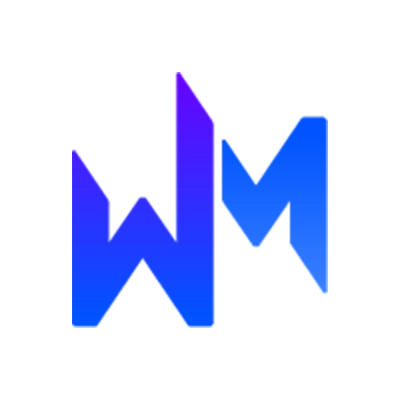Paid Search - In-House vs. Agency

Paid search marketing is a staple of today's advertising landscape.
More and more business owners are buying into, quite literally, the idea that paid search marketing is a surefire way to drive traffic to a website and to increase Return on Investment (ROI). Their confidence shows in their spending. According to eMarketer.com, next year's spending predictions include a $7 billion increase in online ad spending.
The competiveness of the paid search game is enough to make the average business owner's head spin. And, making the decision to keep these efforts in house or to outsource them to an agency is a battle in itself. There are pros and cons, of both, that need to be considered. Experts on both sides of the fence agree.
Experience Counts
The extent and the type of experience that a team offers should be top of mind for any paid search marketing campaign. The in-demand individuals that make up these teams possess the skills and expertise to develop strategy based on client goals; conduct market research to apply in the campaign's execution; identify and employ opportunities to expand client visibility and profitability; create targeted messaging for the campaign's creative development; and more.
For in-house efforts, there are individuals who can tackle the above objectives, and do them well, but there are other objectives that must be met, which require more than a oneman show.
Tom Shapiro, CEO of a strategic marketing and design firm, Digital Marketing NOW, outlines a best-case scenario for in-house teams.
"Keeping the efforts in-house could work well in the case that the internal team, one, is comprised of experienced marketers, as well as paid search marketing specialists; two, comes from different industries with deep marketing experience; and, three, has the analytical and strategic chops," said Shapiro. "It really is critical that the team has both general marketing experts, as well as paid search specialists. The two perspectives complement one another and ensure that the campaigns are fully aligned with the overall branding and business goals of the company."
With that said, Shapiro gives the upper hand to agencies, as an in-house team is not going to have the same breadth of experience and perspective as a marketing agency. "An agency team has the luxury of seeing many different accounts and many different tests on each of these accounts on a continual basis," said Shapiro. "The learning that is uncovered through this type of broad exposure is invaluable, as it is often the cross-pollination of ideas that leads to the most significant breakthroughs."
AMP Agency's Account Director Amy Seeburger agrees with Shapiro and offers further insight.
"With multiple clients and tactics in motion, agencies gather best practice insights across industries, which benefits clients in delivering innovative, high-performing solutions," said Seeburger whose company, AMP, is an integrated communications agency.
There are others who think the higher number of accounts can actually hurt individual campaigns.
"When you work for an agency you have several accounts, so you aren't able to spend as much time on a particular account as you would like to," said Jennifer Yaniz, Search Engine Marketing Manager for 7Search.com. "On average, you have 12-13 accounts, which doesn't allow you much time to think of new strategies."
Time, or lack thereof, is a challenge across all verticals. There are software solutions to help (more on that later), and there are certain aspects of paid search marketing that are also obtainable - like a well-rounded team that is comprised of individuals capable of thinking strategically and acting collaboratively.
Trend Setters
In an ever-evolving landscape, search marketers need to not only be aware of trends, but also stay ahead of them. This is a challenge in any industry, but one that may be more difficult for internal paid search marketing teams, as the individuals must commit to educating themselves. Whereas, the reputation of top agencies provides natural ways to learn about marketplace needs and find ways to meet them.
Agencies like AMP are able to work with search engines, technology partners and industry thought leaders and are often invited to test beta programs, which allow it to evaluate new opportunities, a luxury small- to medium-sized businesses aren't often afforded.
The Cost Factor
From equipment upgrades to pay increases, operating costs are a continuous expense. Outsourcing certain aspects of the workflow is one way companies are reducing these expenses, but at what cost?
For paid search marketing, it could be at the cost of disconnecting a brand's message or goals. Remember the telephone game? It's difficult enough to communicate a message to, and for it to resonate with, multiple parties under one roof, let alone communicate it across several channels to reach an agency. One way to avoid this is by having stakeholders communicate directly with their paid search marketers, rather than a go-between employee listening to an executive's message and then taking it and communicating it to someone else. When decision makers speak directly to the person in charge of their campaign, that person is able to ask follow-up questions at the source. The alternative is that the go-between person may take it upon himself or herself to answer these follow-up questions, and he or she may not provide the best answers and, thus, cause a disconnect between the company and its agency.
Other best practices for developing and maintaining successful client-agency relationships are the same as any other relationship type: treat the relationship as a partnership, be respectful, set expectations, define what success means to both parties, check in regularly, etc.
While there is give and take for both in-house and outsourced paid search marketing efforts, typically the bottom line for most businesses is cost. Outsourcing in itself does not guarantee companies save on costs, but hiring an agency who knows what it is doing can.
The way Digital Marketing NOW typically saves their clients money is by achieving better performance than the clients' historical results.
For example, within six months of taking over a software company's paid search campaign, Digital Marketing NOW increased conversions by 278 percent, increased conversion rate by 80 percent and decreased cost per conversion by 44 percent. One of the first things the agency did when taking over the account was go through a revamp of the landing pages, which it immediately identified as a bottleneck to conversions.
In addition to providing an objective view of current practices, agencies are also able to take companies out of their comfort zone to reduce costs and increase ROI.
"The main ways that we've achieved cost savings for our clients in general is through granular account configuration, strategy development, and testing, testing, testing," said Shapiro, CEO of Digital Marketing NOW. "Often what we find is that clients who come to us have historically managed ad groups that were too broad, which by its nature limits the ability to target and test. We also find that clients tend to be comfortable with certain types of testing (i.e. ad copy testing, landing page testing, etc.), yet aren't focused on other types of tests (i.e. retargeting testing, ad format testing, offer testing, etc.)."
Software Solutions
Another variable to account for in the in-house versus agency debate is software solutions, which both parties can use in the same capacity. Blue Shield of California recently found success when its agency, AMP, deployed Marin Software in an effort to increase its online lead volume and revenues and decrease cost per lead (see sidebar).
The myriad of platforms available to agencies and inhouse teams can really even the playing field between the two. One of the biggest areas of focus for Marin Software is to evangelize best practices and improve efficiency, which can be used by a wide range of advertisers.
"Without a platform like Marin, online marketers spend significant amounts of time in Excel stitching campaign and revenue data into reports or making adjustments to creative and bids," said Matt Lawson, VP of Marketing for Marin Software. "Marin streamlines the search marketing process, improving visibility, workflow and, ultimately, revenue acquisition." In-house or out, search marketing requires strategy, collaboration, continuous education, accountability and best practices that are strong enough to reach both sides of the fence. Without any of these, the race for online revenues is a fruitless one.
As AMP's Account Director, Amy Seeburger, so eloquently said, "At the end of the day, search is about connecting individuals with the information they seek. Add value in that experience and brands are sure to find success."
Web Exclusive!
Outsourcing in Action
 Blue Shield of California, one of the largest healthcare providers in The Golden State, recently increased its online lead volume and revenues through AMP Agency's deployment of Marin Software Enterprise Edition. The easy-to-use predictive bidding capabilities of the platform allowed AMP to maximize lead volumes (a 78 percent increase), while maintaining control over cost per lead (CPL reduced 16 percent).
Blue Shield of California, one of the largest healthcare providers in The Golden State, recently increased its online lead volume and revenues through AMP Agency's deployment of Marin Software Enterprise Edition. The easy-to-use predictive bidding capabilities of the platform allowed AMP to maximize lead volumes (a 78 percent increase), while maintaining control over cost per lead (CPL reduced 16 percent).
"Health providers are up against a competitive and distinct environment when it comes to search marketing," said Troadio Satizabal, Online Marketing Manager at Blue Shield. "Marin Software's flexible advanced bidding optimization capabilities played an integral role in helping AMP Agency achieve Blue Shield of California's aggressive lead generation and efficiency goals within such a unique search atmosphere."
Marin also offers a mid-market version of its product called Marin Professional Edition, which used in tandem with best practices can provide small paid search teams with the same foothold as the big guys.









